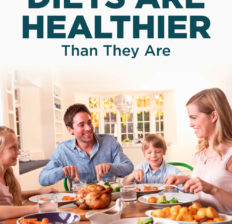This Dr. Axe content is medically reviewed or fact checked to ensure factually accurate information.
With strict editorial sourcing guidelines, we only link to academic research institutions, reputable media sites and, when research is available, medically peer-reviewed studies. Note that the numbers in parentheses (1, 2, etc.) are clickable links to these studies.
The information in our articles is NOT intended to replace a one-on-one relationship with a qualified health care professional and is not intended as medical advice.
This article is based on scientific evidence, written by experts and fact checked by our trained editorial staff. Note that the numbers in parentheses (1, 2, etc.) are clickable links to medically peer-reviewed studies.
Our team includes licensed nutritionists and dietitians, certified health education specialists, as well as certified strength and conditioning specialists, personal trainers and corrective exercise specialists. Our team aims to be not only thorough with its research, but also objective and unbiased.
The information in our articles is NOT intended to replace a one-on-one relationship with a qualified health care professional and is not intended as medical advice.
Americans Think Their Diet Is Healthier Than It Is
July 6, 2022

A recent study suggests that when you ask thousands of adults to assess their diet quality, only 15 percent do it accurately. It turns out that Americans think their diet is healthier than it is.
The study found that a majority of adults overrate the healthfulness of their diets, calling their diets “good” when they would actually be categorized as “poor” when taking food choices and patterns into account.
This may help explain why American diet charts show that a significant portion of the adult population is unhealthy and not getting enough essential nutrients for optimal health.
Study: Americans Think Their Diets Are Healthier Than They Are
A recent study presented by lead author Jessica Thomson, Ph.D., a research epidemiologist with the USDA Agricultural Research Service, suggests that most Americans are not able to gauge the healthiness of their diets.
The purpose of the study was to determine if U.S. adults could accurately assess the quality of their diets if asked by researchers when screening potential participants for dietary interventions.
Data from two cycles the National Health and Nutrition Examination Survey, one in 2015–2016 and the other in 2017–2018, were used for the study. To measure self-assessed diet quality, the 9,757 participants over 20 years old were asked one question: How healthy is your diet?
The five response choices were excellent, very good, good, fair and poor.
Measured diet quality was then assessed using the 2015 Healthy Eating Index, based on 24-hour dietary recalls. Then the total score was categorized using a grading scale that matched the assessments “excellent,” “very good,” “good,” “fair” and “poor.”
When the survey data was analyzed, researchers found that 22 percent of participants rated their diets as “very good” and 41 percent rated their diets as “good,” but for measured diet quality, only 3 percent had “very good” diets and 9 percent had “good” diets. It turns out that 70 percent of participants had “poor” diets, according to the healthy eating index.
Overall, only 15 percent of participants accurately assessed their diet quality, and for those who inaccurately assessed their diet quality, 75 percent overrated the healthfulness of their diets.
What It Means
The majority of American adults cannot accurately assess the quality of their diets unless it’s correctly categorizing their diets as poor, according to this study.
The study authors conclude the report by suggesting that “work is needed to educate adults about what constitutes a healthful diet.” This knowledge will hopefully result in more healthful dietary intake.
When determining the healthfulness of your diet, it’s important to look at the big picture, paying attention to your overall dietary patterns, including your food choices, portions and eating frequency.
Tips to Eat Better
American adults have access to the information they need to follow a healthy, balanced diet, which we know can extend your life. Some factors that may contribute to poorer diet quality are unhealthy food choices, larger than needed portions, frequent eating or snacking, and emotional eating.
Here are some tips to eat better starting now:
- Load up on nutrient-dense foods. Adding fresh, whole foods to your plate, including fruits, vegetables, legumes, beans and whole grains, will crowd out the processed foods that are categorized as poor dietary choices. They are rich in macro- and micronutrients that are needed for optimal health.
- Limit processed foods and added sugars. It’s OK to treat yourself once in a while, perhaps with a piece of cake or salty snack, but think of these moments as indulgences, not normal, everyday food choices. Processed foods made with refined grains and additives have been linked to several health conditions, including obesity and heart disease.
- Choose healthy fats over trans fats. Trans fats are found in processed and packaged foods and should be avoided at all costs. Instead, go for healthy fats like olive oil, avocado, coconut oil, and nuts and seeds.
- Opt for high-quality meat sources. Choose the grilled chicken breast or grass-fed beef over the processed deli meats, fried meats or hot dogs. High-quality organic meat sources don’t contain unhealthy additives that impact your health poorly.
- Pay attention to portions. Use smaller plates or to-go Tupperware when serving your meals, and eat slowly, giving your brain a chance to register your fullness.
- Practice intuitive eating. Actually think about eating while you’re doing it, and listen to your body when it tells you you’re full or need more. Slow down, enjoy the food and be aware of when you’re eating for emotional reasons instead of physical reasons.
Conclusion
- We know that dietary changes impact your health and can improve life expectancy, but a recent study shows that most Americans aren’t even aware that they are not following a good or healthful diet.
- When asked “how healthy is your diet,” 75 percent of American adults overrated their healthfulness. A large majority of adults are actually following a poor diet and appear to have no idea.
- To improve your diet for good, focus on crowding in fresh, nutrient-dense foods, like fruits, vegetables, beans, legumes and whole grains, and reducing or avoiding processed, packaged and sugary foods. It’s also critical to pay attention to portions and eating frequency.











